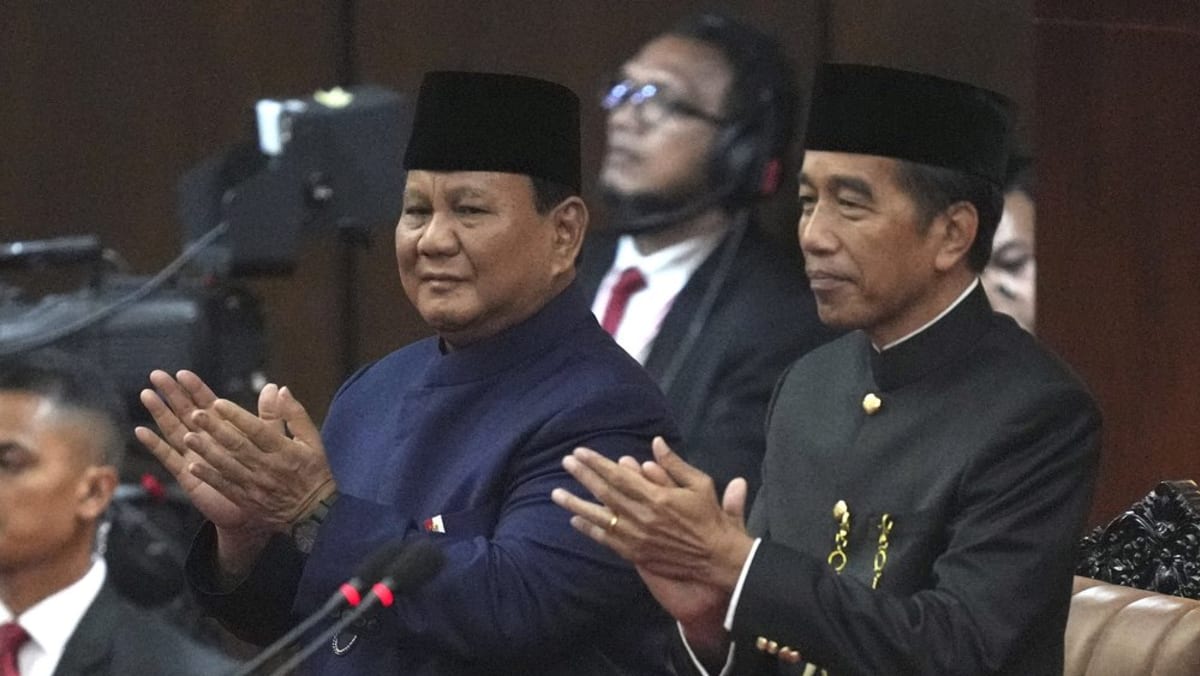MOVING AWAY FROM JOKOWI
The FPP’s push to impeach Gibran appears to be part of a broader effort to reduce Jokowi’s lingering influence. Early in his presidency, Prabowo seemed to allow Jokowi significant influence over government affairs.
Without much fanfare that would attract controversy, however, Prabowo has gradually begun to roll back many of Jokowi’s signature initiatives — most notably, large-scale infrastructure projects like the new capital city, Nusantara.
In their place, Prabowo is introducing his own flagship programmes, such as the sovereign wealth fund Danantara, free nutritious meals for students, food estates in Papua and other regions, the Red and White Village Cooperatives, and “People’s Schools”.
Eight months into his term, Prabowo is showing an approach that is distinct from Jokowi’s. The latter sought to introduce laws that strengthened the government’s control of the bureaucracy of local governments. Prabowo has gone a step further by showing a stronger preference for a command economy and state capitalism — an outlook he articulated in his two books, Kepemimpinan Militer (Military Leadership) and Paradoks Indonesia (Indonesian Paradox).
Like Jokowi, Prabowo brought most of Indonesia’s major political parties into his coalition. But in Prabowo’s case, he did so arguably not to empower them but to neutralise opposition and consolidate control. Unlike Jokowi, Prabowo has been quietly building up a powerful institution, the military.
Through a steady consolidation of power, Prabowo has made significant strides in what appears to be a deliberate process of de-Jokowi-sation. This effort has also triggered a broader realignment among the political elite, with many of Jokowi’s key allies gradually sidelined and replaced by figures loyal to Prabowo.
At the same time, Prabowo has begun to draw closer to Megawati Soekarnoputri, chair of the Indonesian Democratic Party of Struggle (PDI-P) and Jokowi’s chief political rival. While this rapprochement has not yet materialised into a formal alliance, Prabowo’s overtures to Megawati clearly signal his intent to step out of Jokowi’s shadow.
Jokowi has also found himself mired in a trivial yet persistent controversy: There have been questions raised about the authenticity of his degree from the Gadjah Mada University. Realising the damage to his image and political dynasty, Jokowi eventually took legal action.
The de-Jokowi-sation process has also involved the systematic weakening of figures once central to Jokowi’s inner circle. One example is Budi Arie Setiadi, the Minister of Cooperatives and leader of the Pro-Jokowi volunteer network. He is now embroiled in a scandal after being accused of facilitating online gambling during his previous role as Minister of Communication and Information.
Similarly, Erick Thohir, the Minister of State-Owned Enterprises and once a powerful figure under Jokowi, has been increasingly sidelined since the establishment of Danantara. Once seen as a potential future presidential contender, Thohir now appears to be excluded from making major policy decisions, signalling a sharp decline in his political influence.
A similar fate has fallen on Bahlil Lahadalia, the Minister of Investment and Head of the Investment Coordinating Board. Prabowo appears intent on curbing Bahlil’s influence, particularly following his failure in the distribution of 3kg LPG gas canisters. Bahlil is also entangled in a nickel-mining scandal on Gag Island, near the Raja Ampat conservation area in Papua.
However, sidelining Bahlil has proven more complicated than with other figures. Unlike Thohir, who lacks a formal political base, Bahlil chairs the Golkar Party — the second-largest party in Parliament after PDI-P. Jokowi played a huge part in his ascent to the party leadership, via the ousting of former chairman Airlangga Hartarto through a corruption case.
